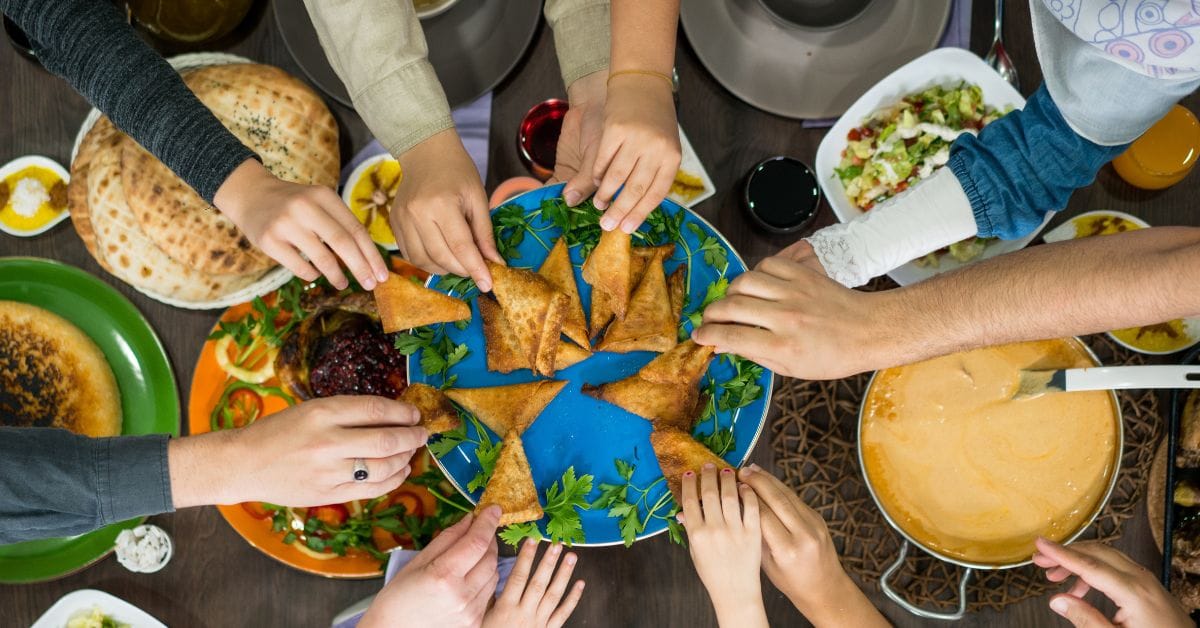When people think of Dubai, glittering skyscrapers, luxury cars, and vast shopping malls usually come to mind first. Yet hidden behind the city’s modern shine is local cuisine in Dubai that tells the story of its desert roots, seafaring heritage, and vibrant trade history.
Walking through the old neighborhoods near the Creek, you can still feel the pulse of Dubai that once welcomed traders from Persia, India, and East Africa. These connections shaped the local palate into what it is today: fragrant rice dishes, slow-cooked meats, hearty stews, and desserts drenched in dates and honey.
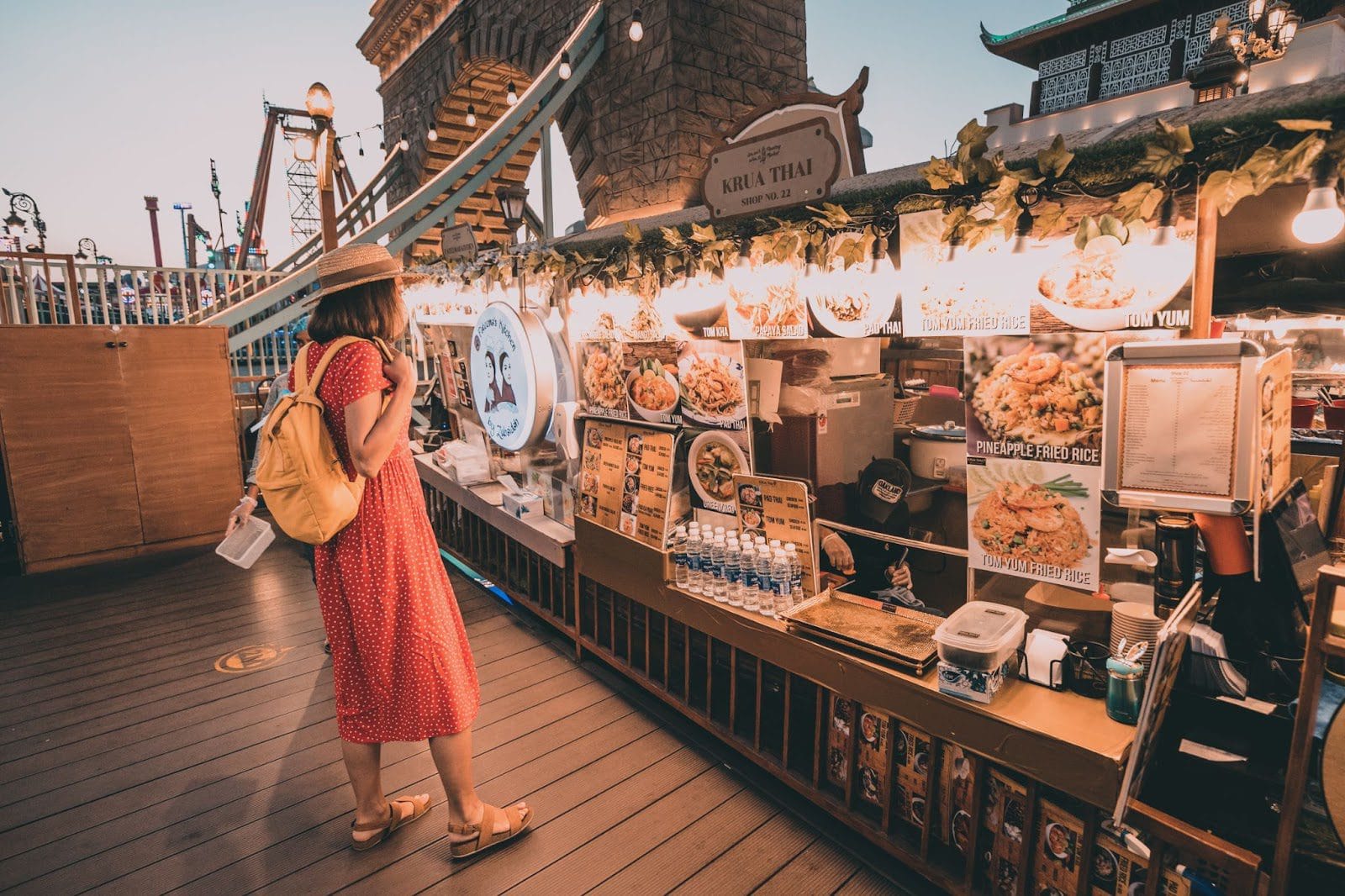
What Makes Dubai’s Local Cuisine Special?
Dubai’s native food is deeply tied to the desert lifestyle. Nomadic Bedouin tribes relied on ingredients that were easy to store and cook, like rice, dates, fish, and camel meat. Over time, the city’s position as a port brought spices and recipes from Iran, India, and the Levant, which blended with Emirati traditions. Today, you’ll find recipes passed down for generations alongside modern takes served in stylish restaurants and humble cafés alike.
Dubai’s food is about sharing. Meals are often served in large communal dishes, with family and guests gathering on carpets to eat together. Hospitality runs deep in Emirati culture; refusing a cup of sweet Arabic coffee or a piece of fresh dates is almost unthinkable.
Classic Emirati Dishes You Should Try
Here are the best dishes everyone should try when it comes to Emirates:
1. Al Harees
A beloved dish during Ramadan, Al Harees is simple but comforting. It’s made with wheat and meat, usually chicken or lamb, slow-cooked for hours until the grains break down into a creamy, porridge-like consistency. Served warmly, it’s a dish that brings families together during special occasions.
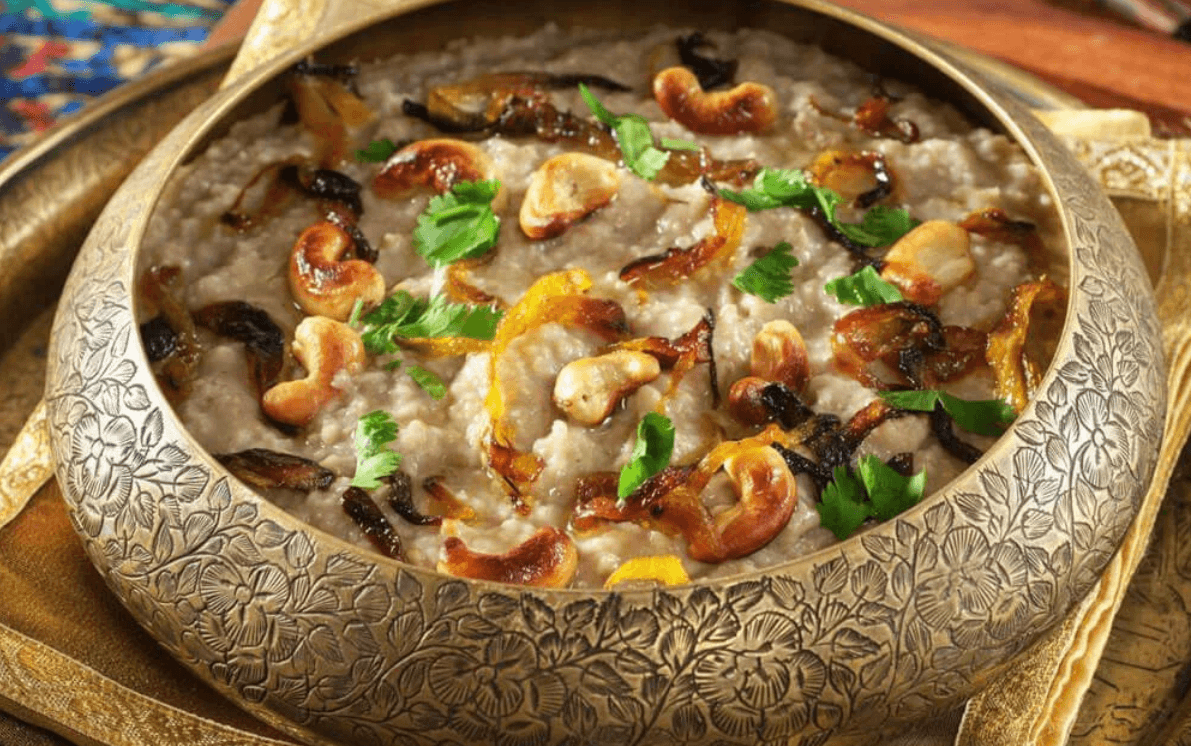
2. Al Machboos
This spiced rice dish is similar to biryani but with a distinctly Emirati twist. The rice is cooked with dried lemon, which gives it a sharp, slightly smoky taste. Al Machboos can be made with chicken, lamb, or even shrimp, depending on what’s fresh and available.
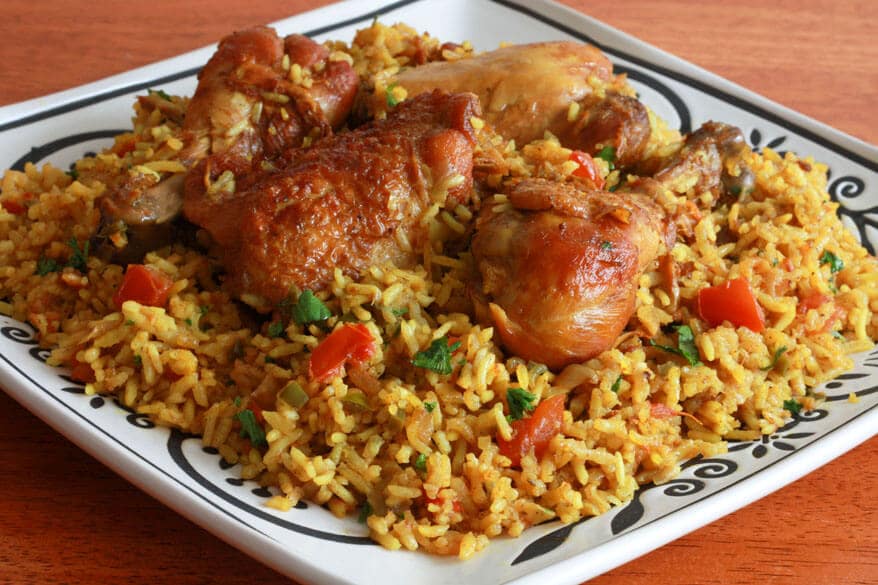
3. Luqaimat
No Emirati meal feels complete without something sweet. Luqaimat are deep-fried dough balls, crisp on the outside and soft inside. They’re drizzled with date syrup or honey and sprinkled with sesame seeds. It’s common to see these golden bites served at festivals, gatherings, and street stalls.
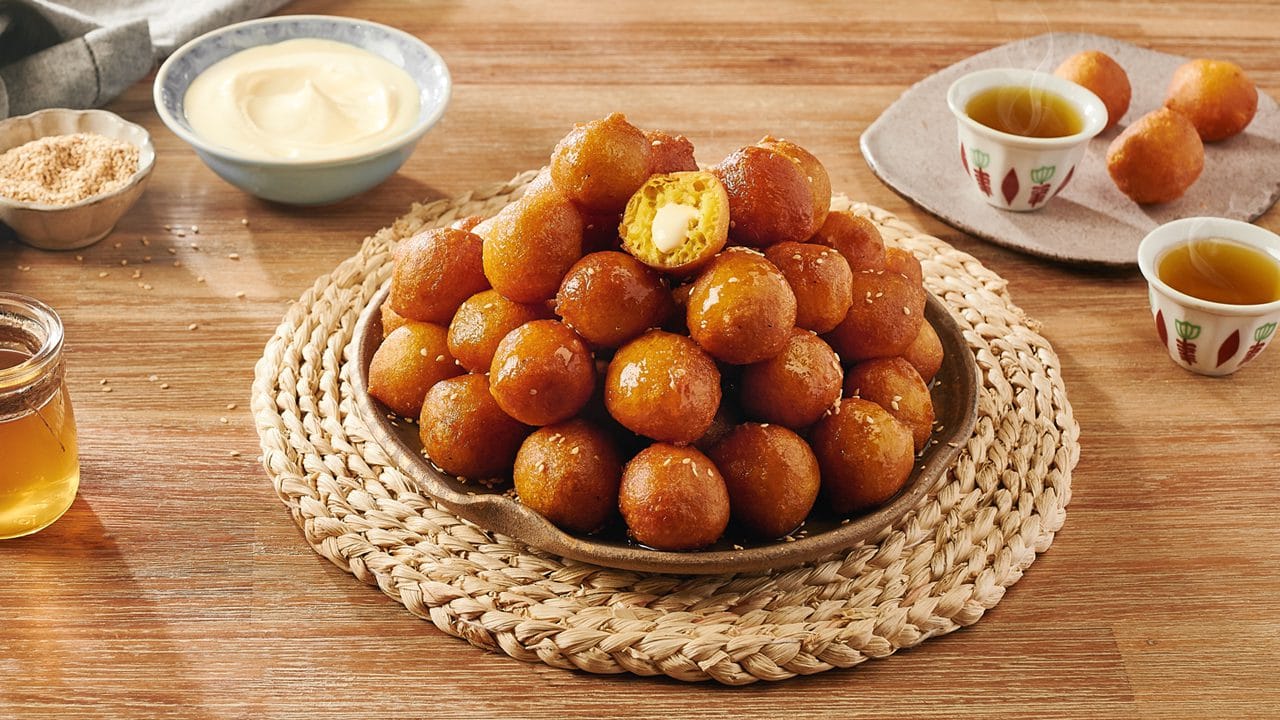
4. Camel Meat
While it might surprise visitors, camel meat is a delicacy in the UAE. It’s usually reserved for weddings or large family feasts. Camel meat can be slow-cooked in stews, grilled as kebabs, or served in burgers for a modern twist.
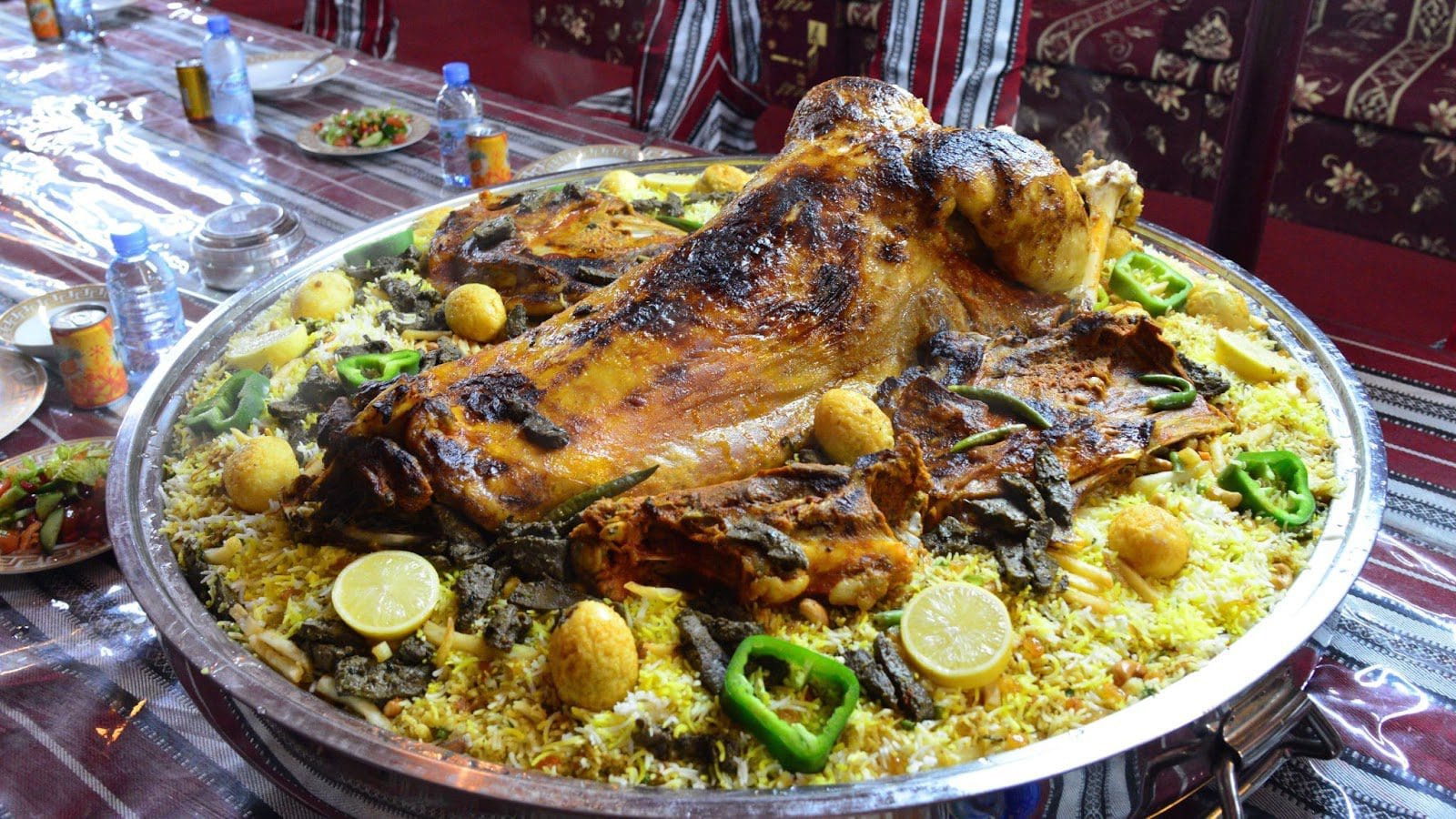
5. Balaleet
Balaleet combines sweet and savory in a way that might catch newcomers off guard. This dish mixes sweetened vermicelli noodles with cardamom and saffron, topped with a thin omelet. Traditionally eaten for breakfast, it’s a great way to start a day of exploring Dubai.
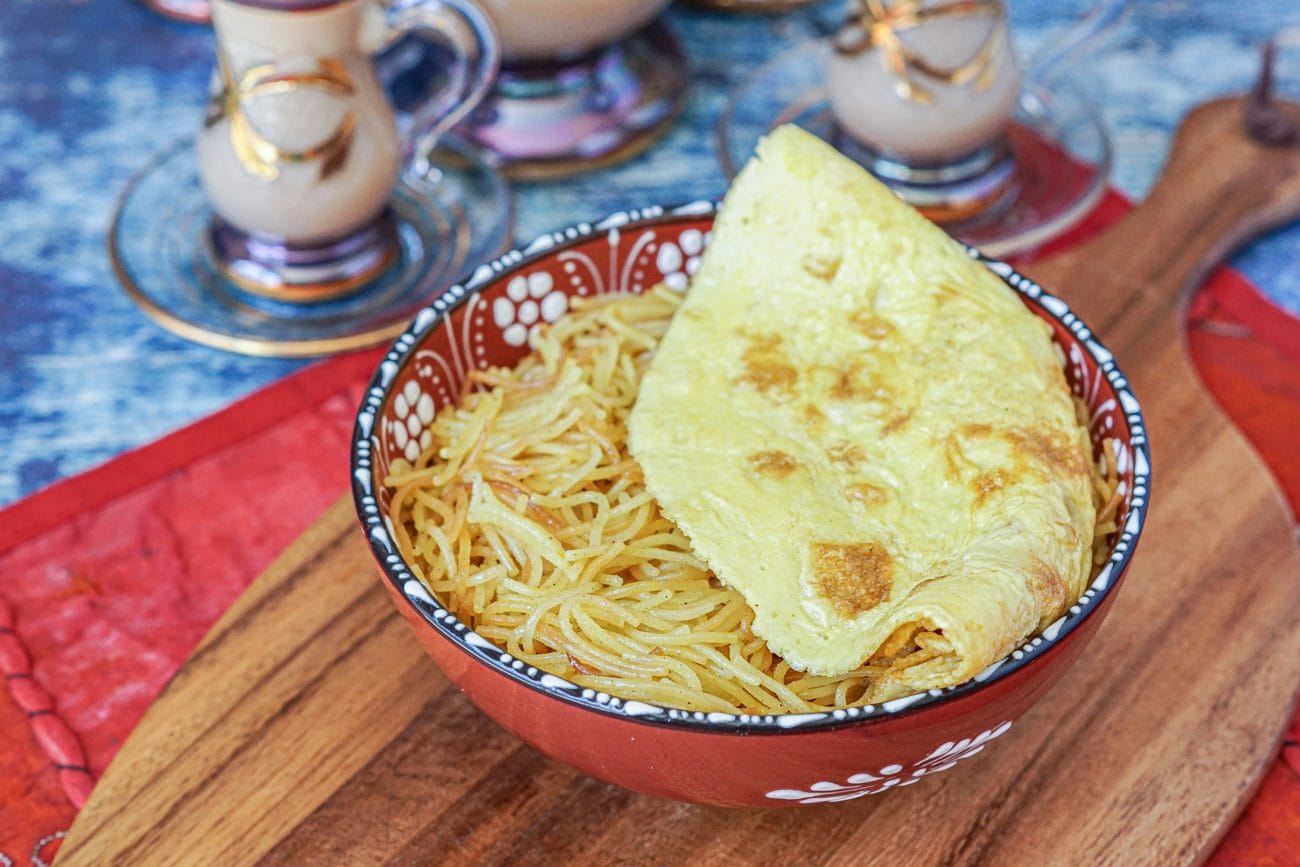
Local Snacks and Street Food
While Dubai is known for its luxury dining, it also has plenty of small eateries and street food spots where you can taste local snacks. Shawarma may not be of Emirati origin, but it has become an integral part of daily life here. Vendors carve thin slices of meat straight from the spit, wrap them in fresh pita, and top them with pickles, garlic sauce, and fries.
Samboosa, the local version of samosas, are popular during Ramadan. These fried pastry pockets are stuffed with spiced meat, cheese, or vegetables. Pair them with a glass of fresh juice from one of the countless juice kiosks around old Dubai, and you have the perfect afternoon snack.
Where to Eat Like a Local
For visitors seeking to experience Dubai’s local flavors, the historic areas of the city, such as Deira, Al Fahidi, and Al Ras, are ideal. These districts are full of hidden gems: tiny restaurants run by families who have been serving the same recipes for decades.
Al Fanar Restaurant & Café is one place that brings back the Dubai of the 1960s. Its décor recreates an old Emirati home, and its menu covers all the classics, from Al Harees to seafood specialties.
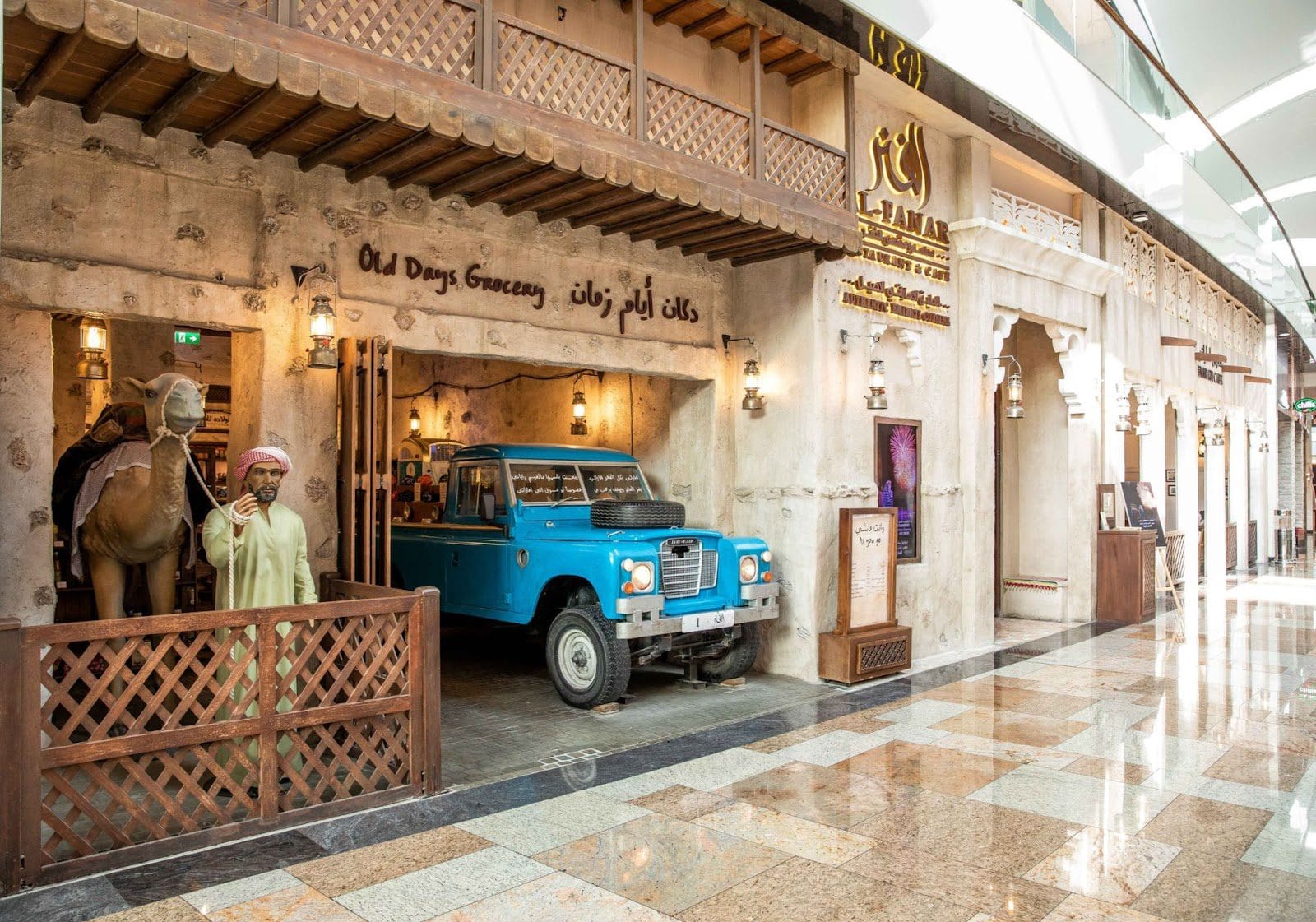
Another option is the Sheikh Mohammed Centre for Cultural Understanding, where you can join a traditional Emirati meal hosted by locals. Sitting cross-legged on carpets, you’ll share dishes and stories and maybe learn a bit more about the customs behind each bite.
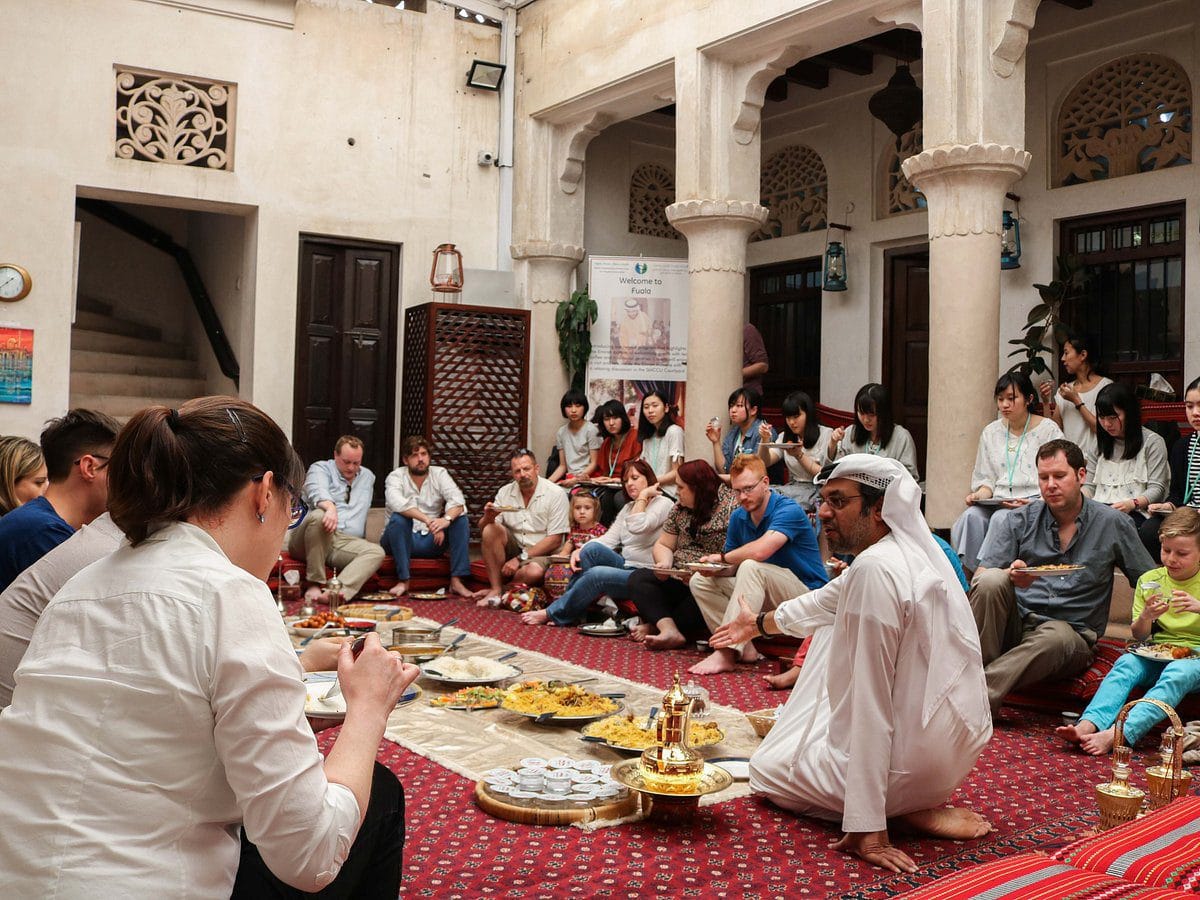
Al Khayma Heritage Restaurant, Tucked away in the old Al Fahidi neighborhood, this spot feels like stepping back in time. Palm frond roofs, lanterns, and traditional floor seating create the perfect backdrop for hearty dishes like Al Harees and freshly baked khameer bread.
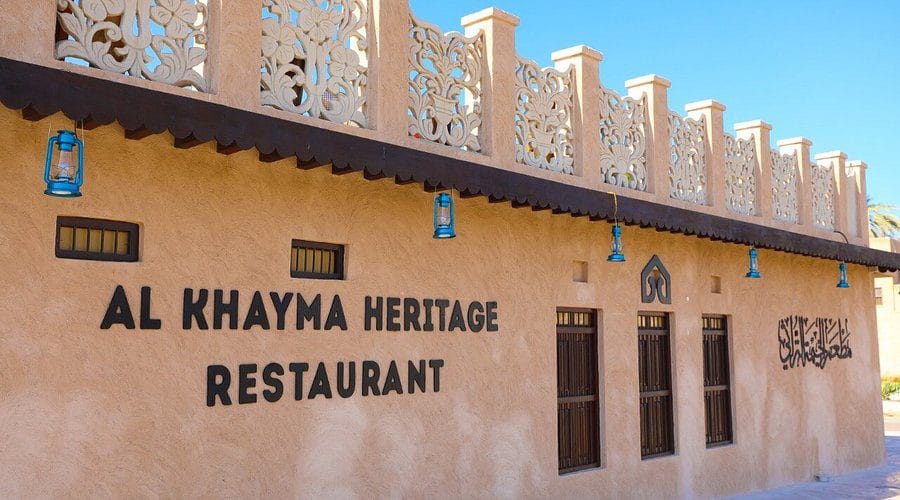
Logma, A popular choice for modern Emirati dining. Logma serves up traditional Khaleeji (Gulf) dishes with a casual café twist. Try the crunchy khameer sliders, chebab pancakes drizzled with date syrup or Emirati spiced fries.
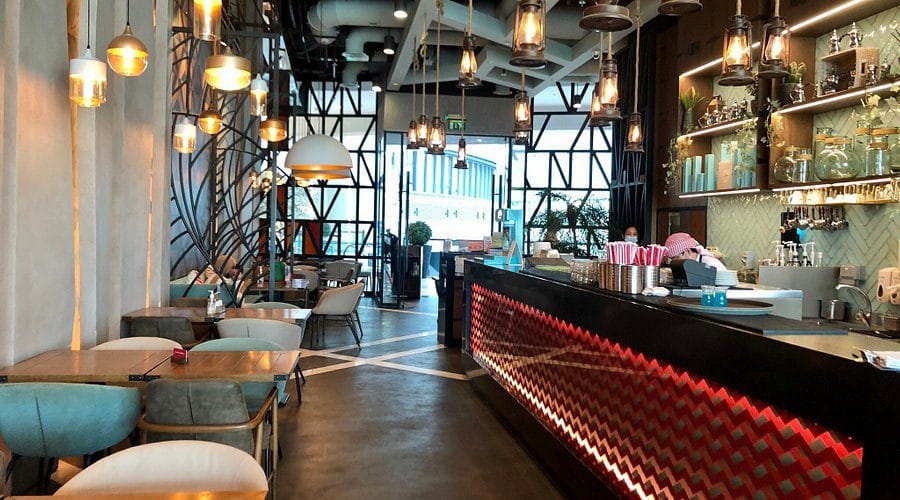
Blending Old and New: Modern Takes on Local Cuisine in Dubai
Dubai’s food scene is always evolving, yet it remains deeply rooted in its traditions. Young chefs are reimagining traditional dishes, adding a fresh spin while preserving the essence of the recipes. This has given rise to a new wave of restaurants that celebrate local flavors in surprising ways.
Take camel sliders, for example. Instead of the classic slow-cooked camel stew, some local cafés now serve camel burgers with saffron-infused mayonnaise or date chutney. It’s a simple switch that allows diners to experience an ancient staple in a more familiar format.
Seafood is also a big part of Emirati cuisine, thanks to Dubai’s fishing heritage. Grilled hammour (local grouper) is served in both traditional homes and chic seaside restaurants, often accompanied by a squeeze of lime and a pinch of sumac for a modern twist.
At places like Arabian Tea House in Al Fahidi, you’ll find Emirati breakfast dishes alongside colorful salads, wraps, and fusion desserts that draw from regional spices and ingredients. These spots have become gathering places for both locals and travelers looking for authentic bites with a modern vibe.
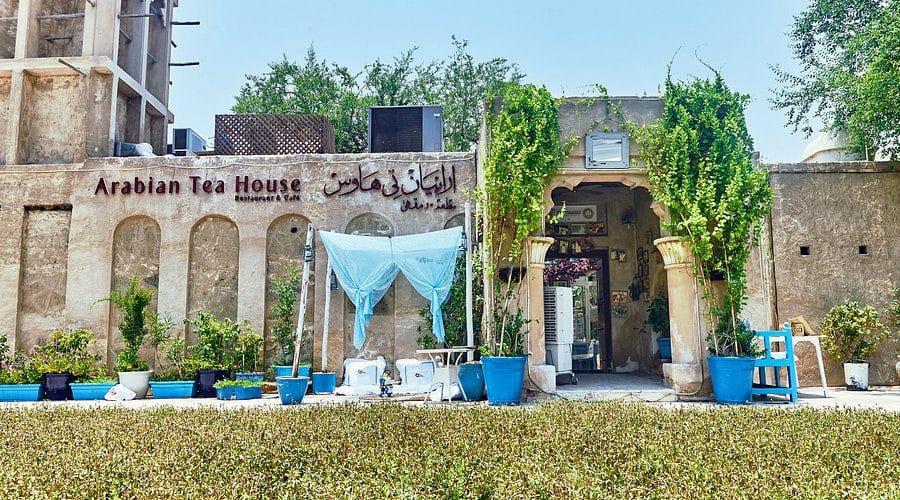
Food Festivals and Culinary Events
Dubai loves to celebrate food. Throughout the year, the city hosts numerous food festivals that showcase local cuisine and the talents of talented chefs.
Dubai Food Festival, for example, is an annual event that showcases everything from high-end restaurants to street stalls. Emirati cuisine takes center stage at these festivals. Visitors can sample traditional recipes, watch live cooking demonstrations, and meet passionate chefs who are dedicated to preserving local food culture.
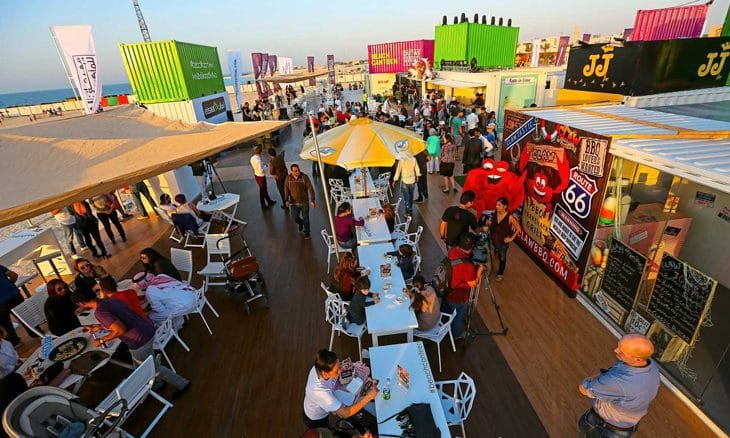
Markets like Ripe Market often feature Emirati food stalls. Here, small businesses and home cooks sell homemade dishes, sweets, and spices. It’s a relaxed way to taste genuine local flavors and buy fresh dates, honey, and condiments to take home.
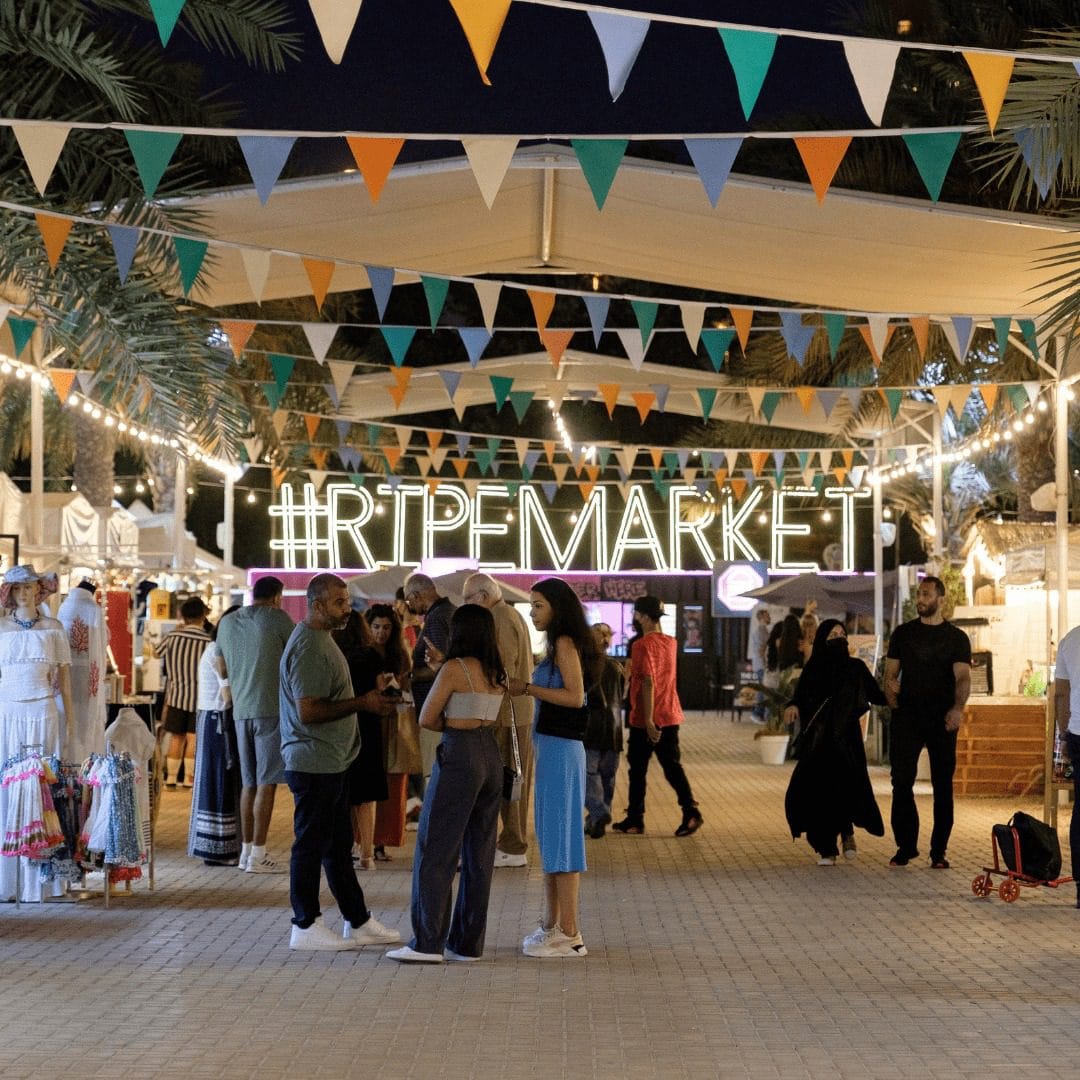
The Sweet Side of Emirati Cuisine
Dubai’s traditional desserts are truly deserving of special mention. Local sweets often feature dates, nuts, and spices, simple ingredients used in creative and innovative ways.
- Luqaimat, mentioned earlier, is a must-try. You’ll see families making them at home during Ramadan and special gatherings.
- Khanfaroosh is another favorite: small fried cakes flavored with cardamom and saffron, usually enjoyed with tea.
- Asida is a soft pudding made with wheat flour, sugar, and ghee, often served with honey or date syrup. This dessert has roots that go back centuries and remains a staple at family gatherings.
Many cafés serve modern versions of these sweets, pairing them with Arabic coffee or strong karak chai, a spiced tea that has found its way from India to every street corner in Dubai.
A Street Food Scene You Shouldn’t Miss
Dubai’s street food is a story in itself. In older areas like Satwa and Karama, small shops and stalls sell quick bites to workers, families, and late-night snack hunters.
Shawarma is king, but you’ll also find places serving falafel, fresh juices, manakish (flatbread with cheese or za’atar), and regag, a paper-thin Emirati crepe stuffed with cheese, chips, or honey. Regag stands are easy to spot in the evenings, with people queuing up for this simple yet satisfying snack.
Trying street food in Dubai is a safe, affordable, and fun way to experience flavors that reflect not only Emirati recipes but also the city’s diverse communities. Many small stalls are run by families who have been feeding generations of Dubai residents.
Souks and Spices: The Heart of Local Flavors
To truly understand what makes Emirati food special, head to Dubai’s bustling souks. These traditional markets are where generations of traders and cooks have found the spices, dried fruits, and ingredients that give local dishes their depth and warmth.
The Spice Souk in Deira is one of the city’s must-visit spots for anyone curious about authentic flavors. Stalls overflow with burlap sacks of cinnamon sticks, star anise, dried limes (loomi), saffron strands, rose petals, and fragrant cardamom pods. Sellers often invite passersby to smell, touch, and taste before making a purchase, and haggling for the best price is all part of the fun.
Beyond spices, many shops sell nuts, dates, and honey, ingredients that are core to Emirati cooking and desserts. Medjool and Khalas dates, prized for their soft, caramel-like sweetness, make an easy snack and a perfect souvenir.
If you want to bring home a taste of Dubai, consider stocking up on blends like bezar, an Emirati spice mix that combines roasted coriander, cumin, fennel, black pepper, and dried chilies. This is the secret behind the rich flavors in stews and rice dishes.
Traditional Drinks to Try
Food isn’t the only thing that tells Dubai’s story. Local drinks play their part too, especially when shared with guests.
Arabic coffee, or gahwa, is central to Emirati hospitality. Unlike the dark, strong espresso many visitors expect, Arabic coffee is lightly roasted and flavored with cardamom. It’s poured from a traditional dallah pot into small handleless cups, usually alongside dates, to balance the slight bitterness.
Karak chai, though originally from India, is now as much a part of daily life in Dubai as anywhere else in the Gulf. This sweet, milky tea is brewed strong with black tea, cardamom, and sometimes saffron. Small roadside cafés serve karak for just a few dirhams, making it a popular drink for everyone from taxi drivers to office workers.
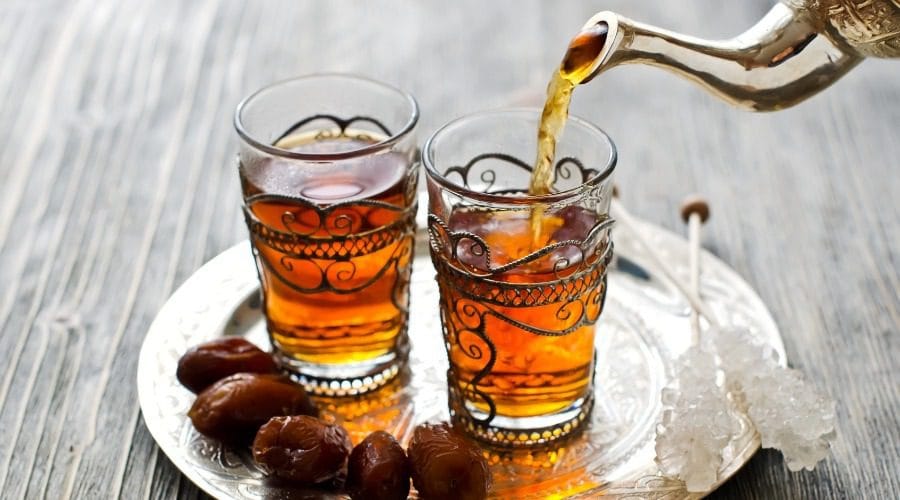
Shopping for Local Ingredients
Cooking Emirati food at home is a great way to keep the flavors alive long after your trip ends. Local supermarkets and souks sell spices in small packets, making them easy to carry home.
Look for:
- Bezar spice mix
- Saffron (often from Iran but used widely in Emirati cooking)
- Dried limes
- Dates and date syrup
- Rose water and orange blossom water for desserts
Some shops even sell Emirati cookbooks in English so that you can try dishes like Al Harees, Machboos, and Luqaimat in your kitchen.
Should You Take a Guided Food Tour or Explore on Your Own?
Many visitors wonder if they should join a guided food tour or find local bites on their own. Both have their perks, but for first-time visitors eager to experience authentic Emirati cuisine, a guided tour often makes things easier.
Guided tours take you to local-approved eateries that might be hard to find otherwise. They also explain the history and culture behind each dish. It’s a chance to try a variety of foods in just a few hours, with someone else handling the details.
Self-guided exploring works well if you have time and a spirit of adventure. Old Dubai’s neighborhoods are easy to wander on foot, and small restaurants usually welcome curious visitors. Just be ready to ask for recommendations; locals are generally happy to point you toward the best shawarma stand or their favorite breakfast spot.
Etiquette Tips for Food Lovers in Dubai
Trying local food in Dubai is about more than just what’s on your plate. Respecting local customs makes the meal even more meaningful:
- Dress modestly when visiting traditional areas or dining with locals.
- Use your right hand for eating and greeting.
- If sharing food from a communal plate, take it from the side closest to you.
- Never decline coffee or dates if they’re offered at a local home or cultural center, it’s seen as a warm welcome.
Beyond Restaurants: Food in the Desert
Many visitors book a desert safari in Dubai. Beyond dune bashing and camel rides, the highlight for many is the evening meal under the stars. While some desert camps serve a mix of Arabic and international dishes, look for tours that focus on Emirati specialties.
Sitting on a low cushion, eating slow-cooked lamb and fresh flatbreads under the open sky, you get a taste of how Bedouin families once gathered around the fire. Local guides often share stories of desert life and the role food plays in bringing people together in harsh climates.
Family Recipes and Hidden Gems
One of the best parts about Dubai’s food scene is that so much of it lives in family kitchens and small eateries, away from the tourist crowds. Many older residents still prepare dishes the way their grandparents did: slow-cooked, generously spiced, and meant to be shared.
If you get the chance, try a home-style restaurant in neighborhoods like Al Karama or Deira. Many of these spots don’t even have fancy signs out front, but inside, you’ll find dishes like marak samak (fish stew), stuffed vine leaves, or freshly fried regal served with cheese and Oman chips.
Eating local in Dubai isn’t just about flavor; it’s a chance to sit with people whose lives are deeply intertwined with these recipes, hearing stories that connect the present to the past.
Final Tips for Food Lovers Visiting Dubai
- Eat outside the big malls. Dubai’s small cafés and neighborhood restaurants hold more stories and often tastier dishes than the big-name chains.
- Be open to asking locals for suggestions. Taxi drivers, shopkeepers, and market sellers often know the best-hidden food stalls.
- Respect the seasons. During Ramadan, many restaurants adjust their hours or close during daylight hours. It’s also the best time to try special Emirati dishes served only during this month.
- Try something new. Whether it’s camel meat, luqaimat, or regag from a roadside cart, Dubai rewards curious taste buds.
Food in Dubai: A Journey That Stays With You
Local cuisine in Dubai is more than recipes; it’s an invitation. It’s an open door into homes and traditions, where food ties families together and welcomes guests with warmth. Whether you’re savoring a bite of sweet luqaimat in a courtyard café, sipping strong gahwa in a desert camp, or walking the spice-laden alleys of Deira, you’re tasting the city’s past and present all at once.
Dubai’s skyline may be lined with glass towers and glittering lights, but its actual flavor lives in clay pots simmering for hours, street-side shawarma stands feeding crowds late into the night, and recipes whispered from grandmothers to grandchildren.
So, next time you’re here, set your sights beyond the skyscrapers and head straight for a table, where the real stories wait, one bite at a time.

